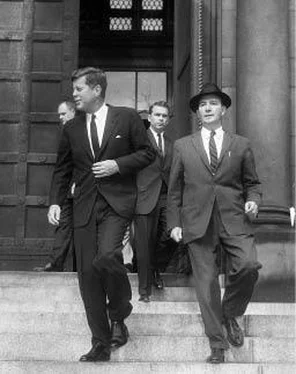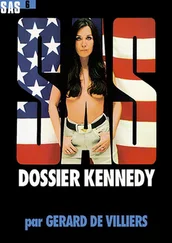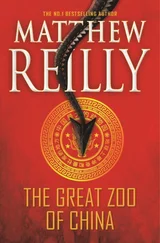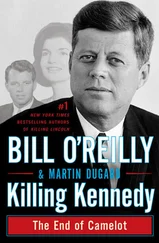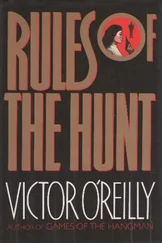O’Reilly, Bill - Killing Kennedy
Здесь есть возможность читать онлайн «O’Reilly, Bill - Killing Kennedy» весь текст электронной книги совершенно бесплатно (целиком полную версию без сокращений). В некоторых случаях можно слушать аудио, скачать через торрент в формате fb2 и присутствует краткое содержание. Год выпуска: 2012, Издательство: Henry Holt and Company, Жанр: Старинная литература, на английском языке. Описание произведения, (предисловие) а так же отзывы посетителей доступны на портале библиотеки ЛибКат.
- Название:Killing Kennedy
- Автор:
- Издательство:Henry Holt and Company
- Жанр:
- Год:2012
- ISBN:нет данных
- Рейтинг книги:5 / 5. Голосов: 1
-
Избранное:Добавить в избранное
- Отзывы:
-
Ваша оценка:
- 100
- 1
- 2
- 3
- 4
- 5
Killing Kennedy: краткое содержание, описание и аннотация
Предлагаем к чтению аннотацию, описание, краткое содержание или предисловие (зависит от того, что написал сам автор книги «Killing Kennedy»). Если вы не нашли необходимую информацию о книге — напишите в комментариях, мы постараемся отыскать её.
Killing Kennedy — читать онлайн бесплатно полную книгу (весь текст) целиком
Ниже представлен текст книги, разбитый по страницам. Система сохранения места последней прочитанной страницы, позволяет с удобством читать онлайн бесплатно книгу «Killing Kennedy», без необходимости каждый раз заново искать на чём Вы остановились. Поставьте закладку, и сможете в любой момент перейти на страницу, на которой закончили чтение.
Интервал:
Закладка:
Oswald knows all this, and so much more about Marina, because between the nights of March 18 and 30, they spend a great deal of time together. “We walk,” he writes. “I talk a little about myself, she talks a lot about herself.”
Their relationship takes a sudden turn on March 30, when Oswald enters the Fourth Clinic Hospital for an adenoid operation. Marina visits him constantly, and by the time Lee Harvey is discharged, he “knows I must have her.” On April 30 they are married. Marina almost immediately becomes pregnant.
Life is getting more and more complicated for Lee Harvey Oswald.
* * *
In the winter of 1961 the world outside the White House is turbulent. The cold war is raging. Americans are terrified of the Soviet Union and its arsenal of nuclear weapons. Ninety miles south of Florida, Fidel Castro has recently taken over Cuba, ushering in a regime thought to be friendly to the Soviets.
In America’s Deep South, there is growing racial strife.
In the marketplace, there is a new contraceptive device known simply as “The Pill.”
On the radio, Chubby Checker is exhorting young Americans to do the Twist, while Elvis Presley is asking women everywhere if they’re lonesome tonight.
But inside the Kennedy White House, Jackie sees to it that none of these political and social upheavals intrude on creating the perfect environment to raise a family. Her schedule revolves around her children. In a break from the traditional style of First Lady parenting, in which children are managed by the household staff, she is completely involved in the lives of three-year-old Caroline and baby John, taking them with her to meetings and on errands.
As she grows more comfortable in the White House, it will not be uncommon for Jackie to camouflage herself with a scarf and heavy coat and take the children to the circus or a park—discreetly followed by the Secret Service.
The sight of the First Lady playing with her children on the South Lawn will also soon become commonplace, causing one observer to note that Jackie is “so like a little girl who had never grown up.” Indeed, she speaks with the same breathy, almost childlike voice of actress Marilyn Monroe.
The First Lady likes to think of herself as a traditional wife and dotes on her husband. But she also has a fiercely independent streak, breaking White House protocol by refusing to attend the myriad teas and social functions other First Ladies have endured. Jackie prefers to spend time with her children or concoct designs for a lavish renovation of the White House, an activity that does not interest her husband, who has little aesthetic sense when it comes to such matters. Jackie Kennedy refers to her new home as “the president’s house” and takes her inspiration from Thomas Jefferson’s White House, elaborately decorated by the former ambassador to France.
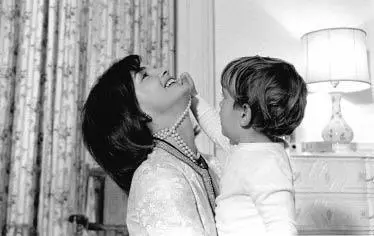
Jackie was a devoted mother to her children, Caroline and John F. Kennedy Jr., pictured here playing with his mother’s necklace in the West Bedroom. (Cecil Stoughton, White House Photographs, John F. Kennedy Presidential Library and Museum, Boston)
The current décor dates to the Truman administration. Many pieces of furniture are reproductions instead of actual period originals, giving America’s most notable residence a cheap, derivative feel rather than an aura of grandeur. Jackie is assembling a team of top collectors to enhance the décor of the White House in every possible way.
She thinks she has years to finish.
At least four. Perhaps even eight.
She thinks.
3
APRIL 17, 1961
WASHINGTON, D.C./BAY OF PIGS, CUBA
9:40 A.M.
John F. Kennedy absentmindedly buttons his suit coat. He is seated aboard Marine One, his presidential Marine Corps helicopter, as it flares for a landing on the South Lawn of the White House. He has just spent a most unrelaxing weekend at Glen Ora, the family’s four-hundred-acre rented country retreat in Virginia that the Secret Service has code-named Chateau.
The president is meticulous about his appearance and will change his clothes completely at least three more times today, on each occasion putting on yet another crisply starched shirt, a new tie, and a suit custom-tailored by Brooks Brothers. His suit coats are invariably charcoal or deep blue. But it is not vanity that drives John Kennedy’s obsession with clothing. Rather, it is a peculiar quirk of his personality that he is uncomfortable if he wears a garment too long. He drives his longtime valet, George Thomas, crazy with his constant changes.
But right now Kennedy is not concentrating on his personal appearance, even though he does, as always, pat the top of his head to make sure every strand of hair is in place. Habits are hard to break.
Kennedy is preoccupied with Cuba. Roughly twelve hundred miles due south of Washington, D.C., a battlefield is taking shape. Kennedy has authorized a covert invasion of the island nation, sending fourteen hundred anti-Castro exiles to do a job that the U.S. military, by rule of international law, cannot do itself. The freedom fighters’ goal is nothing less than the overthrow of the Cuban government. The plan has been in the works since long before Kennedy was elected. Both the Central Intelligence Agency and the Joint Chiefs of Staff have assured the president that the mission will succeed. But it is Kennedy who has given the go-ahead—and it is he who will take the blame if the mission fails.
Once the UH-34 helicopter touches down on the metal pads specially placed on the South Lawn as a landing spot, JFK emerges headfirst out the door, stepping down onto the new spring grass. The president looks calm and unflappable, but his stomach is churning, literally. The stress of the weekend, with its last-minute planning of the risky attack, has brought on severe diarrhea and a debilitating urinary tract infection. His doctor has prescribed injections of penicillin and a diet of liquefied food to make his afflictions more bearable. Yet he feels miserable. But as awful as things seem right now, the president knows that his Monday is about to get much worse.
The president walks purposefully through the serenity of the White House Rose Garden, even as the Cuban exiles comprising Brigade 2506 are in grave danger, pinned down on a remote stretch of sand in Cuba.
This inlet will go down in infamy as the Bay of Pigs.
John F. Kennedy steps through the Rose Garden entrance into the Oval Office, with its gray carpet and off-white walls. During the winter, when there are no leaves on the trees, it is possible to gaze out toward the National Mall from the tall windows behind Kennedy’s desk. At the far end, hidden from JFK’s view by the Old Executive Office Building, rises the Lincoln Memorial. But Kennedy doesn’t sit down, nor does he glance out in the direction of Mr. Lincoln.
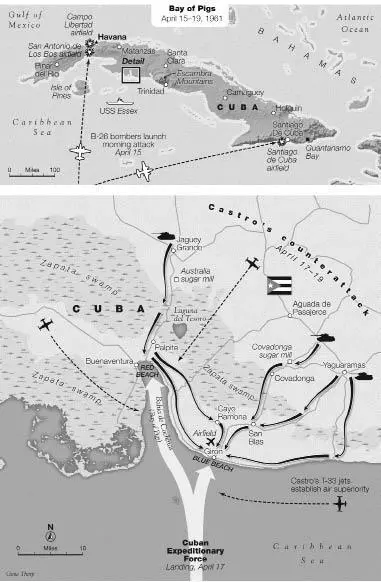
He is much too anxious about the events in Cuba to have a seat.
* * *
It has not been a good week for America. On April 12 the Soviets stunned the world by launching the first man into space, proving to one and all that they have rockets capable of carrying nuclear warheads all the way to the United States. The cold war that has raged between the two nations for more than a decade is now clearly tipped in the Soviets’ favor. Many in Washington believe that overthrowing the pro-Soviet Castro will go a long way toward restoring equilibrium to the cold war.
Kennedy knew he had the backing of the American people when he authorized the invasion. Fear about the global spread of communism is rampant in the United States. Anything he does to stop it will be applauded. And while invading another country is an enormous diplomatic risk, the president enjoys a 78 percent approval rating after his first months on the job, political capital with which to gamble. Newspapers and magazines are gushing about the young president, calling Kennedy “omniscient” and “omnipotent.”
Читать дальшеИнтервал:
Закладка:
Похожие книги на «Killing Kennedy»
Представляем Вашему вниманию похожие книги на «Killing Kennedy» списком для выбора. Мы отобрали схожую по названию и смыслу литературу в надежде предоставить читателям больше вариантов отыскать новые, интересные, ещё непрочитанные произведения.
Обсуждение, отзывы о книге «Killing Kennedy» и просто собственные мнения читателей. Оставьте ваши комментарии, напишите, что Вы думаете о произведении, его смысле или главных героях. Укажите что конкретно понравилось, а что нет, и почему Вы так считаете.
